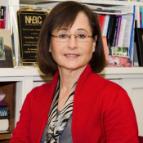
Dr. Guadalupe Valdés
Professor Emerita
Graduate School of Education at Stanford University
Dr. Valdés' research explores many of the issues of bilingualism relevant to teachers in training, included methods of instruction, typologies, measurement of progress, and the role of education in national policies on immigration. Specifically, she studies the sociolinguistic processes of linguistic acquisition by learners in different circumstances - those who set out to learn a second language in a formal school setting (elective bilingualism) and those who must learn two languages in order to adapt to immediate family-based or work-based communicative needs within an immigrant community (circumstantial bilingualism).
Her research in these areas has made her one of the most eminent experts on Spanish-English bilingualism in the United States.
We invite you to view highlights from this featured speaker presentation, provided in brief segments below. You may also watch the entire presentation, or review Dr. Jiménez-Castellanos’ PowerPoint slides.
“Curricularizing” Language: Combating Systems of Exclusion To Promote Equity
|
1. Combating Systems of Exclusion to Promote Equity (4m 56s) “As we focus on equity for EL categorized students, we need to be able to compare, contrast, and evaluate the multiple activities that now count as ‘language teaching’." |
|
2. Approaches to Language Teaching; Keeping Our Focus on Equity (12m 6s) “What we do in our classrooms, [is] influenced by policies conducts and traditions and by ideological and theoretical mechanisms.” |
|
3. Language Ideologies Matter (3m 30s) “Language ideologies are unexamined ideas and beliefs that shape people’s thinking about language and about those who use language” |
|
4. Ideologies About Bilingualism (6m 51s) “[Another thing] that colors the way that we think about what we do as language teachers is our understanding of bilingualism… The word “bilingualism” is a popular term that has been made to cover so many different phenomena that it has become virtually meaningless.” |
|
5. Keeping Our Focus on Equity: Teaching Language Right (8m 12s) “Language is primarily interactive… Rehearsing the specifics and producing a memorized dialogue with a partner will not prepare students for the unpredictability of interactivity with actual speakers of the “target” language.” |
|
6. Purposeful Action: Shifting the Discourse from Demands to Affordances (9m 33s) “Language is elliptical. It always builds on the language of others….real skill involves [being] able to build on what went on before [in the conversation].” |
|
7. Language In Use: Affordances In Language Development (6m 12s) “Language is a complex, dynamic system… and language acquisition is not linear…Language is lived… Language develops as a result of meaningful participation in human interactions.” |
|
8. Legitimate Measure of Success: Using Language to Learn (2m 5s) “In our classrooms, in order to ensure equity, we have to create the conditions that can develop the students’ ability to use language in order to learn.” |